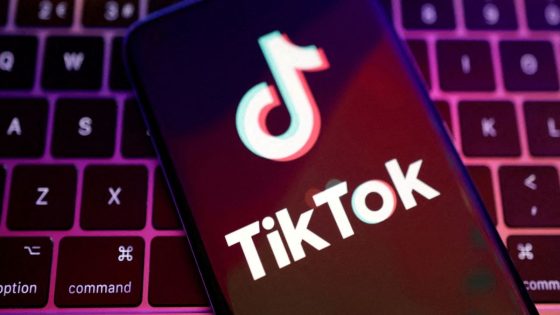Over 150 million Americans could be left without access to TikTok.
The House of Representatives has passed a bill that will strong-arm parent company ByteDance, which is headquartered in China, to sell the social media sensation to a non-Chinese entity within months — or face a total ban from app stores and the internet in the United States.
The Protecting Americans from Foreign Adversary Controlled Applications Act was passed 352 to 65.
However, the legislation is not a done deal. It must still pass in the second house and Senate majority leader Chuck Schumer has not confirmed whether it will even be put to a vote.
If approved in the Senate, Joe Biden has already confirmed that he’ll sign the bill into law.
The controversial legislation would classify TikTok as a national security risk for American citizens, allowing the US government to block the popular social media service from app stores and web browsers for every citizen. Congressmen Mike Gallagher, a Republican, and Raja Krishnamoorthi, a Democrat, introduced the Protecting Americans from Foreign Adversary Controlled Applications Act last week.
Employees walk into the ByteDance headquarters, which is located in the Chinese capital city Beijing
REUTERS
ByteDance is a Chinese technology company with its headquarters in Beijing.
The law accuses the firm, which was started back in 2012 but didn’t launch TikTok until September 2017, of being backed by the ruling Chinese Communist Party. Like many Chinese corporations, ByteDance has an internal Chinese Communist Party (CCP) committee, which sees Vice President Zhang Fuping serving as ByteDance’s CCP Committee Secretary.
“This is my message to TikTok: break up with the Chinese Communist Party or lose access to your American users. America’s foremost adversary has no business controlling a dominant media platform in the United States,” Congressmen Mike Gallagher said in a press release.
Raja Krishnamoorthi says the idea behind the draft legislation is to “protect American social media users […] from the digital surveillance and influence operations of regimes that could weaponise their personal data against them.”
TikTok has blasted the proposed legislation, stating that it hurts free speech and the 5 million businesses that rely on the social media app every day. It has urged its users to call their representatives in Congress to voice opposition against the bill.
According to The New York Times, some Congressional phone lines have been overwhelmed due to the vast number of impassioned TiKTok users trying to voice their concerns. Some of the callers appeared to be teenagers, the article claims.
ByteDance has previously confirmed that it has over 150 million users in the United States of America. In a press release published last year, it confirmed: “TikTok is a special place where Americans come together to learn, be entertained, grow their business, as they continue to create, discover and connect with a broader global community.
“Today, we’re celebrating our mission as we continue to inspire creativity and bring joy across the United States for more than 150 million people. We’re honoured to be a home for our immensely diverse community in the United States, made up of nearly half the country’s population, including book lovers, foodies, families, emerging artists and so much more.
“This milestone would not have been possible without the hard work and unwavering commitment of almost 7,000 TikTok employees in the US, as well as our incredible community in the country and around the world.”
The draft Protecting Americans from Foreign Adversary Controlled Applications Act could not only be used to block TikTok from web browsers and app stores for every US citizen. It could be used to block any social media apps run by foreign bodies that US lawmakers determine “pose a national security threat”.
This could pave the way for other applications to face the same threat as ByteDance — sell the asset to another company or face a full ban in one of the biggest markets on the planet.
LATEST DEVELOPMENTS
The bill is expected to go to a vote in the House of Representatives next week.
Source Agencies



